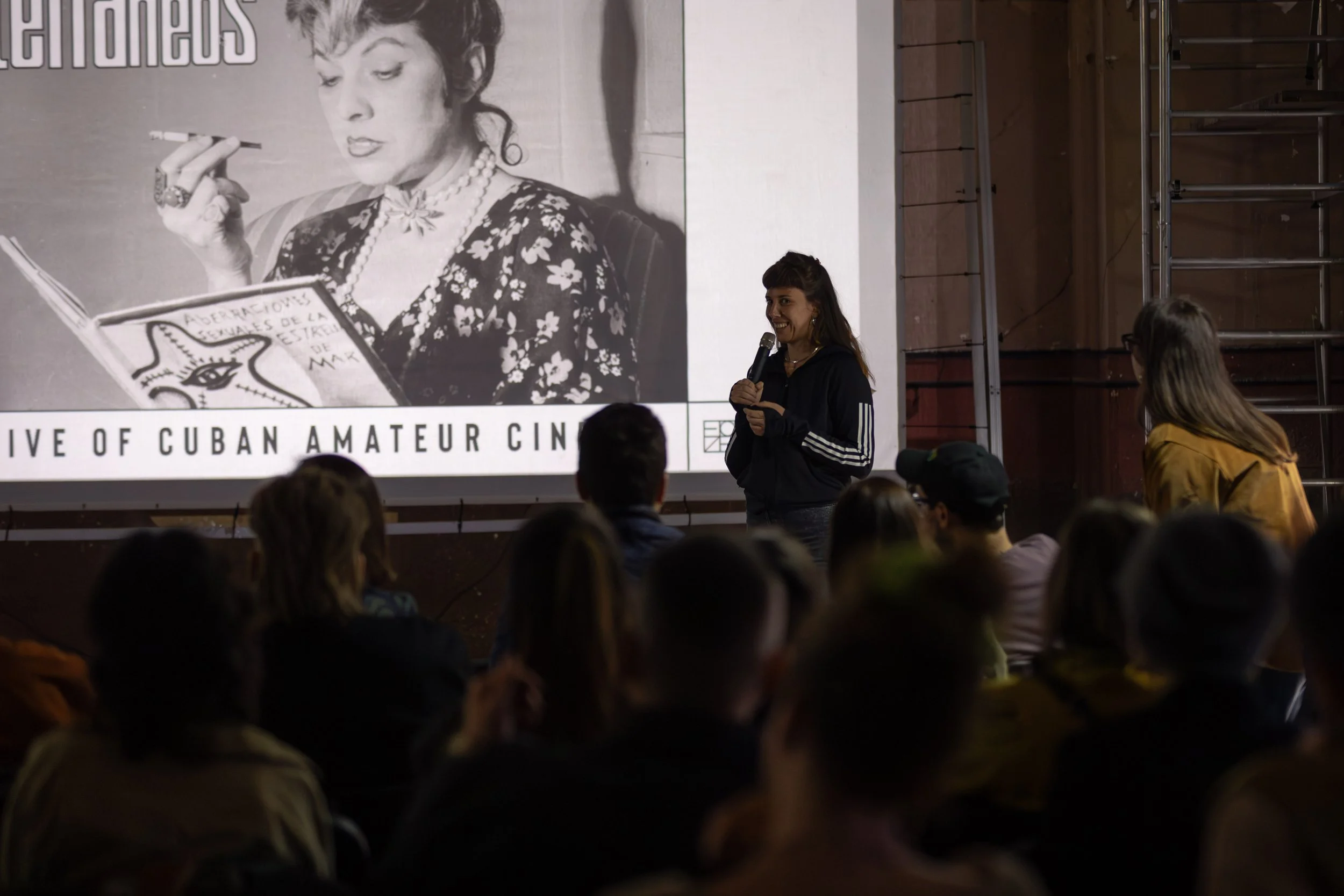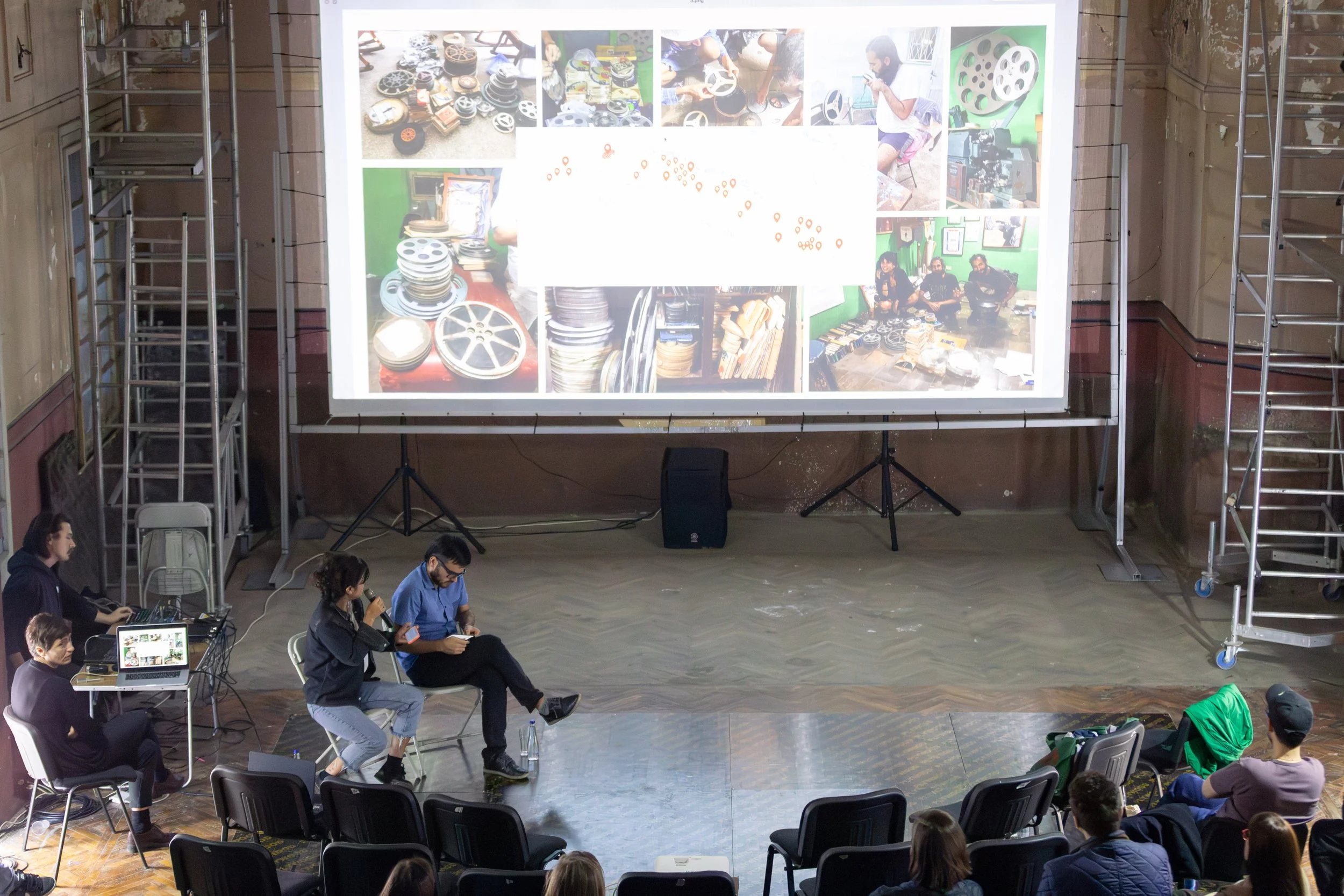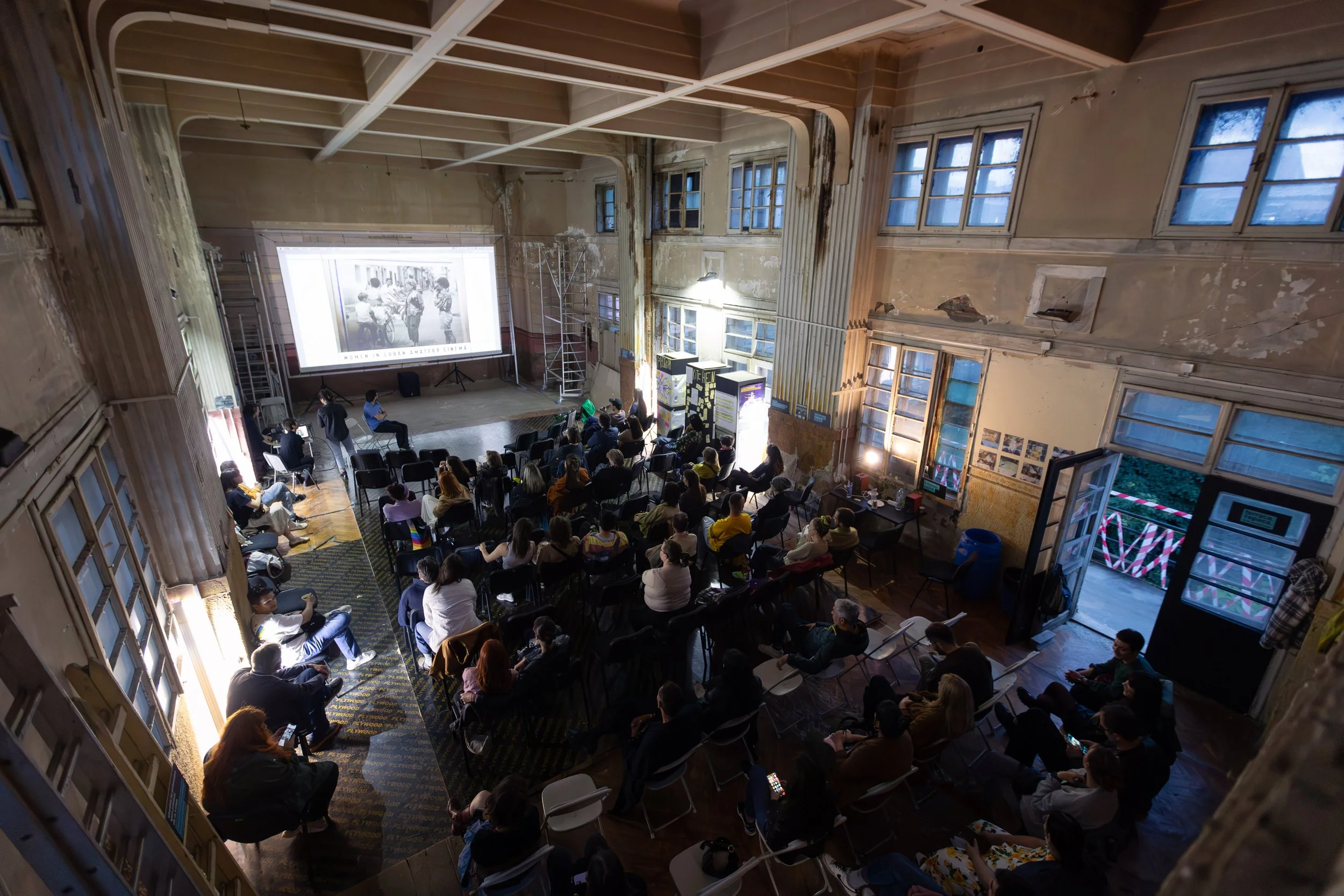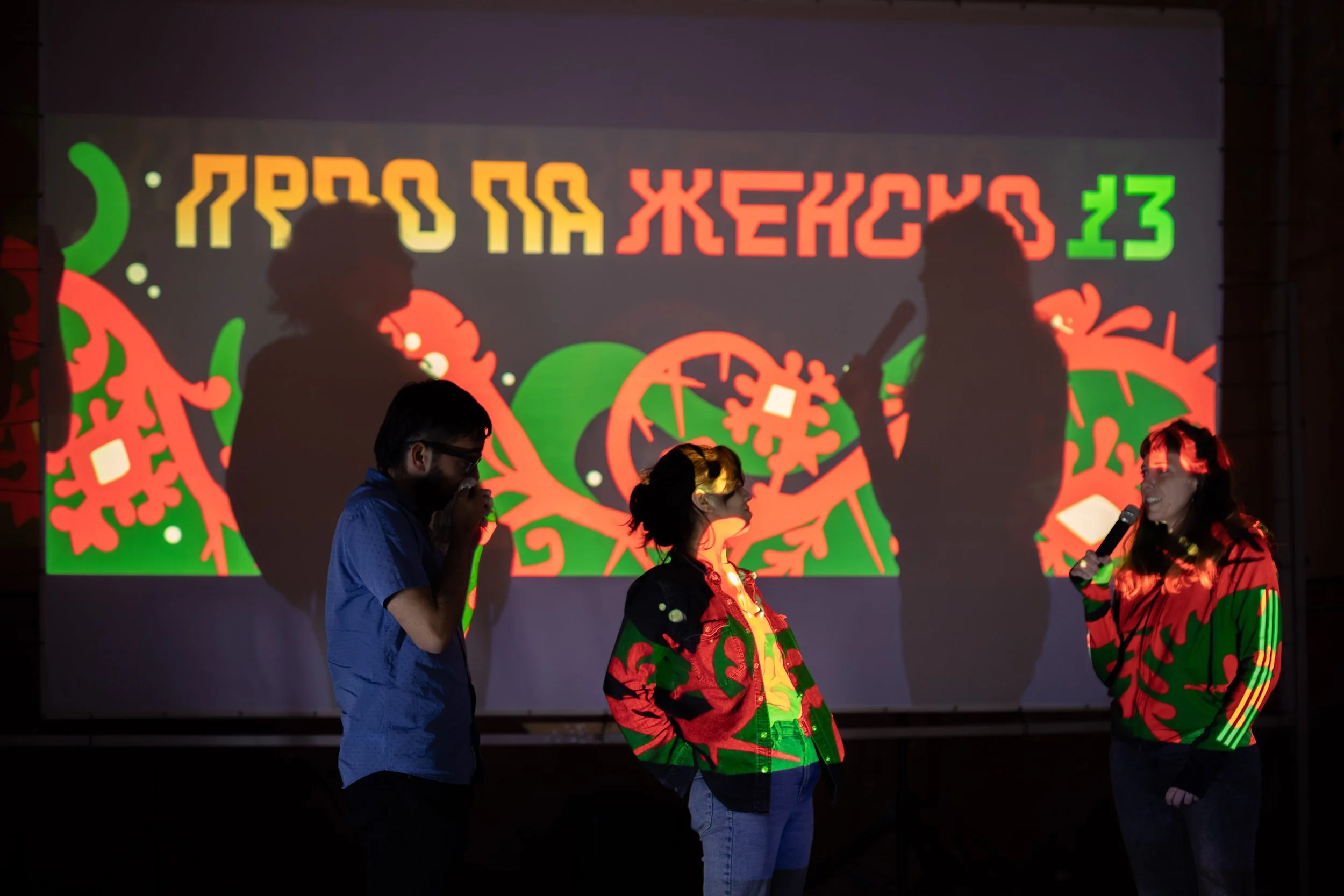UNSEEN X ПРВО ПА ЖЕНСКО
Uspostavljanje veze: Kino klubovi i feministički pristupi pokretnim slikama
Bridging: Cinema Clubs and Feminist Approaches to Moving Images
30. and 31. 05.2025. 20:00h, Dokukino KIC
The first collaboration between Kino Unseen from Zagreb and the festival Prvo pa žensko from Skopje continues Unseen’s Bridging program, focusing on the traditions and practices of cinema clubs and their echoes and spaces of connection today. With this program, we emphasize a return to regional collaborations, as well as those between the region and the Non-Aligned countries. Beyond engaging with practices of archiving, restoration, and representation of films produced from the 1960s to the present, we will also touch on the exchanges and collaborations that Yugoslavia fostered through amateur and alternative filmmaking with Non-Aligned nations.
Over the course of two film evenings, we will open up questions of infrastructure, methods of production, exchange, and access to filmmaking for the working class within cinema clubs in both Yugoslavia and Cuba, while also forging new pathways for potential collaborations in the future. We will not shy away from asking what remains with us today, how we use it, what is visible and what is hidden. A central question will be: how can the role of women—film workers—be traced within these cinema club networks through the decades?
The first evening is dedicated to Cuban amateur film through the restoration and archival work of the collective Archivistas Salvajes (Lucía Malandro, Daniel Saucedo, Josué G. Gómez, Fabio Quintero). Archivistas Salvajes is a Cuban collective devoted to preserving non-hegemonic and marginalized image archives from the island. As they state, their mission is to rescue, preserve, and disseminate segments of Cuban visual heritage that have been rendered invisible or marginalized by systemic culture, restoring their historical and cultural value.
In contextualizing the films they selected for this occasion, they write:
No women's creation film club was ever officially presided over by women. When thinking of the major names in Cuban amateur cinema, we usually think of men. The same applies to the most remembered films. Although the number of female directors was small, by analyzing the context of Cuban cinema during the 70s, 80s, and early 90s, it becomes evident that several Cuban women found, in this parallel space outside the hegemonic industry, a way to carve out their own, ephemeral, fragmentary, and diffuse place in history.
Reconstructing the story of these women has been even more difficult than tracing that of the men: scattered and missing archives, exiles, diasporas, and unfinished works marked their paths. However, their impact on the amateur Cuban film scene was significant at the time.
The second evening opens the question of women's roles within the Yugoslav amateur cinema club scene. Although, due to the various difficulties we face today in the region—political repression, corruption, the criminalization of solidarity, and the continued precarity of labor in culture and filmmaking—we will (only) screen films by female authors who have worked and continue to work at Kino Klub Zagreb (Ivančić, Zidarić) and Kino Klub Split (Ivanišević), we will, through a conversation with film scholar and researcher Sima Kokotović from Belgrade, reflect on the broader Yugoslav scene and the exchanges and collaborations that occurred until the 1990s. In addition to screening films produced in the 1960s, we will also discuss the life of cinema clubs today and their futures.













